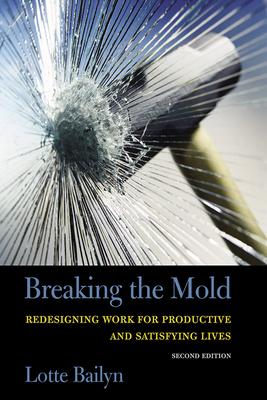In Breaking the Mold, Lotte Bailyn argues that society's separation of work and family is no longer a tenable model for employees or the organizations that employ them. Unless American business is willing to radically rethink some of its basic assumptions about work, career paths, and time, both employee and employer will suffer in today's intensely competitive business environment. Bailyn's message was bold when this book was originally published in 1993. Now thoroughly updated to reflect the latest developments in the organization of work, the demography of the workforce, and attitudes toward the integration of work and personal life, this second edition is even more compelling.Bailyn finds that implementation of policies designed to allow "flexibility" is rarely smooth and often results in gender inequity. Using real-life cases to illustrate the problems employees encounter in coordinating work and private life, she details how corporations generally handle these problems and suggests models for innovation. Throughout, she shows how the structure and culture of corporate life could be changed to integrate employees' other obligations and interests, and in the process help organizations become more effective. Drawing on international comparisons as well as many years of working with organizations of various kinds, Bailyn emphasizes the need to redesign work itself.Breaking the Mold allows us to rethink the connections between organizational processes and personal concerns. Implementation of Bailyn's suggestions could help employees to become more effective in all realms of their complicated lives and allow employing organizations to engage their full productive potential.

In Breaking the Mold, Lotte Bailyn argues that society's separation of work and family is no longer a tenable model for employees or the organizations that employ them. Unless American business is willing to radically rethink some of its basic assumptions about work, career paths, and time, both employee and employer will suffer in today's intensely competitive business environment. Bailyn's message was bold when this book was originally published in 1993. Now thoroughly updated to reflect the latest developments in the organization of work, the demography of the workforce, and attitudes toward the integration of work and personal life, this second edition is even more compelling.Bailyn finds that implementation of policies designed to allow "flexibility" is rarely smooth and often results in gender inequity. Using real-life cases to illustrate the problems employees encounter in coordinating work and private life, she details how corporations generally handle these problems and suggests models for innovation. Throughout, she shows how the structure and culture of corporate life could be changed to integrate employees' other obligations and interests, and in the process help organizations become more effective. Drawing on international comparisons as well as many years of working with organizations of various kinds, Bailyn emphasizes the need to redesign work itself.Breaking the Mold allows us to rethink the connections between organizational processes and personal concerns. Implementation of Bailyn's suggestions could help employees to become more effective in all realms of their complicated lives and allow employing organizations to engage their full productive potential.